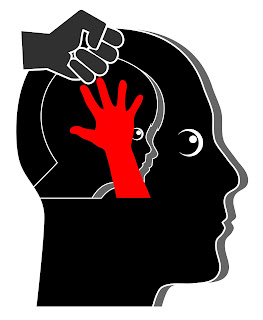If you are an active user of social media platforms like Twitter or X, you might have come across the term 'shadowban.' A shadowban is a type of ban where your posts are no longer visible to your followers, but you have yet to be notified of the ban. It can be frustrating to continue posting content and engaging with your followers without realizing you are shadowbanned.
Translate
Thursday, October 26, 2023
Saturday, October 14, 2023
NO MORE HANDSHAKE!
Friday, October 6, 2023
Discover the World of Statistics and Expand Your Knowledge
Have you ever heard of the World of Statistics? If not, you are missing out on a wealth of knowledge and information about the world around us. The person behind this amazing resource is clearly intelligent and dedicated to providing accurate and informative statistics to those who are curious about the world we live in.
Thursday, October 5, 2023
7 Tips to Prevent Peptic Ulcers
1. Avoid smoking: Tobacco use can irritate the lining of the stomach and increase the risk of developing ulcers.
Wednesday, October 4, 2023
INTERESTING FACTS ABOUT POLITICS: Presidents, Parliaments, and Pop Culture
Politics is a fascinating and complex field, with a rich history and many interesting facts. Did you know that the United States has had 45 different presidents since George Washington took office in 1789? Or that the shortest-serving president was William Henry Harrison, who died just 31 days after taking the oath of office?
The Rise and Fall of Biafra: A History of Nigeria's Short-Lived Secessionist State
Biafra was declared by the Igbo people, who were the dominant ethnic group in the southeastern region of Nigeria, in response to political, economic, and ethnic tensions with the central Nigerian government.
The name "Biafra" was derived from the Bight of Biafra, a bay on the Atlantic Ocean.
The conflict between Biafra and Nigeria resulted in a devastating civil war that saw massive loss of life and displacement of people.
Despite initial successes, Biafra was ultimately defeated by Nigerian forces in 1970, and the region was reintegrated into Nigeria as part of a peace agreement.
The Biafran War is estimated to have resulted in the deaths of between 1 and 3 million people, mostly from starvation and disease caused by the Nigerian blockade of the region.
The Biafran struggle for secession continues to have a lasting impact on Nigerian politics and society and has influenced other secessionist movements around the world.
20WAYS TO DEAL WITH EMOTIONAL INCONSISTENCY
1. Practice mindfulness meditation to become more aware of your emotions and develop a greater sense of emotional regulation.
2. Keep a journal to help you process your emotions and gain clarity on your thoughts and feelings.
FACTS ABOUT HELEN KELLER (DEAFBLIND)
1. Helen Keller was born in Tuscumbia, Alabama, in 1880.
2. She lost her sight and hearing at the age of 19 months due to an illness that was likely either meningitis or scarlet fever.
FACTS ABOUT DEAF CULTURE
1. Sign language is the primary mode of communication in Deaf culture. Sign Language is the most widely used language in the world.
THE CONTROVERSY OF COCHLEAR IMPLANT
Cochlear implants have been a topic of controversy within the Deaf community. While some see them as a valuable tool for improving communication and access to sound, others view them as a threat to Deaf culture and identity. Some see them as a middle between the Deaf and Hearing world.
Tuesday, October 3, 2023
DEAF ETIQUETTE!
Deaf etiquette is an important aspect of communication that many people are not aware of. Knowing how to properly communicate with someone who is deaf or hard of hearing can make a significant difference in their quality of life. In this blog, we will discuss some key tips for communicating with deaf individuals.
Firstly, it is important to know that not all deaf individuals use Sign Language; again, not all deaf individuals use American Sign Language. Some use Nigerian Sign Language, British Sign Language, and so so. Check here: http://bit.ly/46a8ESq for more information. Some may use lipreading or written communication instead. Always ask the individual what method of communication they prefer.
If the person does use sign language, it is important to face them directly and maintain eye contact while signing. This will help them understand your signs more easily. Additionally, it is important to avoid covering your mouth or speaking while signing, as this can make it difficult for the person to understand.
When communicating with a deaf person using written communication, it is important to use clear, concise language and avoid using complex vocabulary or idioms. It is also helpful to write in large, bold letters and to avoid using cursive or script handwriting.
Another important aspect of deaf etiquette is to be patient. Communication with a deaf person may take longer than with a hearing person, but it is important to remain patient and not rush the conversation. Additionally, it is important to speak at a normal pace and not overly exaggerate your lip movements, as this can make it difficult for the person to read your lips.
Lastly, it is important to be respectful of the deaf person's culture and identity. Deaf culture is a unique and important part of their identity, and it is important to respect and appreciate it.
In conclusion, deaf etiquette is an essential aspect of communication that can greatly improve the quality of life for deaf individuals. By following these tips and being respectful of their culture and identity, we can create a more inclusive and welcoming society for all.
Monday, October 2, 2023
MENTAL HEALTH: Debunking Myths and Revealing Facts
Fact 1: Approximately 1 in 4 people worldwide experience mental health issues.
Myth 2: Mental health illnesses aren't genuine illnesses.
Fact 2: Mental illnesses are real health conditions that can be effectively treated.
Myth 3: Medication is the only treatment for mental health issues.
Fact 3: While medication can be helpful for some individuals, it's not the sole treatment option. Therapy, lifestyle changes, and support from loved ones can also play a crucial role in managing and recovering from mental health issues.
Myth 4: Mental health problems last a lifetime.
Fact 4: Mental health issues may fluctuate over time, but with treatment and therapy, their impact can diminish.
Myth 5: Therapy is only for severe mental health conditions.
Fact 5: Therapy is beneficial for individuals with a wide range of mental health concerns, from mild to severe. It can help people develop coping skills, manage stress, and improve their overall well-being.
Myth 6: People with mental health issues are inherently violent.
Fact 6: They are not more prone to violence than anyone else.
Myth 7: People with mental health issues can't maintain employment.
Fact 7: Many individuals with mental health issues hold steady jobs, and approximately 50% of those with severe mental health conditions are currently employed.
Myth 8: Psychiatric medications are harmful.
Fact 8: Medications can significantly improve the functioning of many individuals.
Myth 9: You can't assist someone with mental health issues.
Fact 9: Providing support to someone struggling with mental health issues is possible by lending a listening ear and knowing what to say.
Myth 10: Mental health issues only affect adults.
Fact 10: Mental health issues can affect individuals of all ages, including children, teenagers, and the elderly.
Myth 11: Seeking help for mental health issues is a sign of weakness.
Fact 11: Seeking help for mental health issues is a courageous step towards recovery. It shows self-awareness and strength to address and manage these challenges effectively.
Myth 12: Mental health issues are a result of personal failure.
Fact 12: Mental health issues are not a reflection of personal failure. They can affect anyone, regardless of their achievements or successes, and are often caused by a combination of genetic, environmental, and biological factors.
Myth 13: People with mental health issues can "snap out of it" if they just try harder.
Fact 13: Mental health issues are not a matter of willpower or choice. They are complex conditions that often require professional treatment and support.











